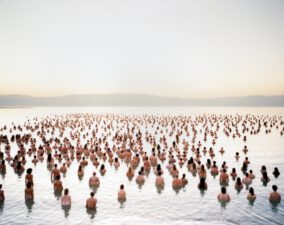Iranian authorities’ decades-long systematic repression of Baha’is amounts to the crime against humanity of persecution, Human Rights Watch said in a report released today.
The 49-page report, “‘The Boot on My Neck’: Iranian Authorities’ Crime of Persecution Against Baha’is in Iran,” documents Iranian authorities’ systematic violation of the fundamental rights of members of the Baha’i community through discriminatory laws and policies that target them.
The Bahai people are among the most peaceful in the world. Its founder, an Iranian, combined all the world religions into a new practice united Judaism, Islam, Christianity and more into one faith. The world center is in Israel. The Baháʼí World Centre is the name given to the spiritual and administrative centre of the Baháʼí Faith in the city of Acre, Israel.
Read Also: How Bahai in Iran are inherently green
Human Rights Watch found that Baha’is face a spectrum of abuses. Government agencies arrest and imprison Baha’is arbitrarily, confiscate their property, restrict their education and employment opportunities, and even deny them dignified burial. We met a Bahai in Toronto last summer working as an Uber driver, who confirmed these allegations. Bahai’s in Egypt also face prosecution.
“Iranian authorities deprive Baha’is of their fundamental rights in every aspect of their lives, not due to their actions, but simply for belonging to a faith group,” said Michael Page, deputy Middle East director at Human Rights Watch. “It is critically important to increase international pressure on Iran to end this crime against humanity.”

Bahai temple in Chile
The report, released from Beirut, draws on extensive documentation by Human Rights Watch and Iranian human rights groups regarding violations against Baha’is in Iran. Researchers reviewed government policies, court documents, and communications with Baha’is. Information was accessed through the Archive of the Persecution of Baha’is in Iran and documents from the Human Rights Activists News Agency. Human Rights Watch also conducted interviews with 14 Baha’is remotely in Persian, both within Iran and abroad place between May 2022 and March 2023.
Baha’is are the largest unrecognized religious minority in Iran. They have been the target of harsh, state-backed repression since their religion was established in the 19th century. After the 1979 revolution, Iranian authorities executed or forcibly disappeared hundreds of Baha’is, including their community leaders. Thousands more have lost their jobs and pensions or were forced to leave their homes or country.
Read Also: Women in Iran killed for not wearing head covering
Since 1979, the Islamic Republic of Iran has codified its repression of Baha’is into law and official government policy, vigorously enforced by security forces and judicial authorities. Judicial authorities interpret vague national security laws to label Baha’is an outlawed religious minority, branding them as a threat to national security. Human Rights Watch says it believes that this sustained systematic repression deliberately deprives Baha’is of their basic rights, constituting the crime against humanity of persecution.

It’s been 40 years since 10 Bahai women were hung for not renouncing their faith in Iran
Baha’is spoke to Human Rights Watch described their persecution as a series of violations that begin with their first encounters with the Iranian state and affect every aspect of their lives, including education, employment, and marriage.
“[When I left Iran to continue my education], I did not intend to emigrate,” said Negar Sabet, 38-year-old daughter of Mahvash Sabet Shahriari, a prominent member of the Baha’i community currently imprisoned in Iran. She said:
“But my experience at the university outside of the country was very different, as if for the first time a burden was lifted off my shoulders and the boot on my neck had disappeared … There [abroad] I experienced a strange freedom, and for the first time I was equal with other people, and no one was pulling themselves away from me.”






